Threads: The Winchesters Season 1 Episode 4 “Masters of War”
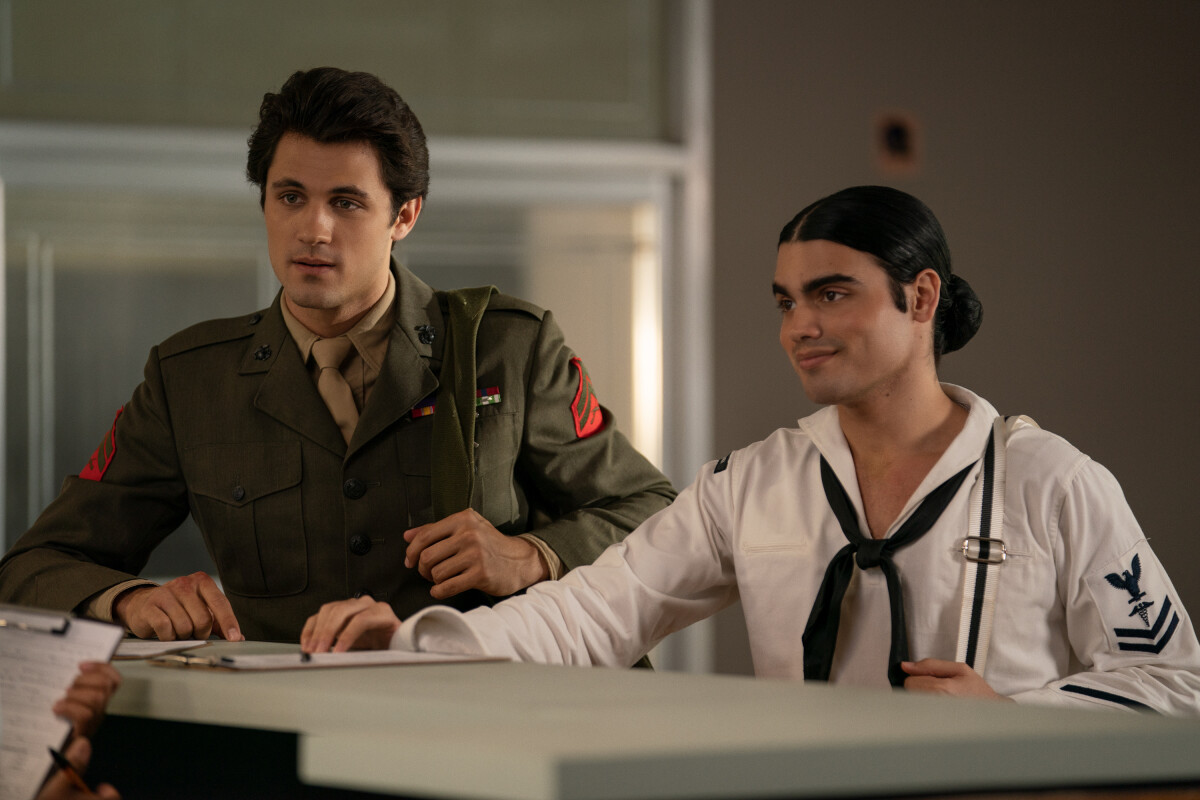
A Few Days Later
Absolutely superb! The Winchesters’ “Masters of War” brought the fledgling series to the next level of storytelling. Grounded in the moving performances of Drake Rodger as John Winchester and JoJo Fleites as Carlos Cervantez, veterans haunted by memories of their time in the Vietnam War, this “monster of the week” episode created an emotional experience for its audience that was completely unexpected. Each stage of their hunt immersed these young men deeper in their past traumas, which the actors skillfully translated into emotional tension for viewers. By the time the closing musical montage began, I was already reliving my own memories of a decade of war I had long ago forgotten, but the killer blow was yet to come. It was both heartwarming and heartbreaking to watch Carlos genuinely reaching out for help after his undercover ruse was no longer necessary, then looking over at an empty chair next to him, recognizing that his friend was still silently imprisoned in trauma. Learning the depth of John’s breakdown, though, was the surprise knockout punch I never saw coming. I had foolishly let down my guard believing the last scenes would be quick epilogue summaries, but the stunning image of exactly how much pain John was holding inside was the most powerful insight into his character we could have gotten. As his tears flowed, so did mine. The haunting truth is I’m not sure if I was feeling for John, empathizing with his mother, or releasing my own emotional connection to a time that scarred a nation.
Getting to Know John, Mary, Carlos and Lata… and How They Shed their Pasts
Dean: Fighting the battle between good and evil isn’t easy, especially when the first monster you have to face is the one inside yourself.
John’s Post Traumatic Stress Disorder (PTSD) was introduced in the first few minutes of the series. Before he had even arrived back home from the Vietnam War, John was shown reliving flashbacks of his friend Murphy’s death. John’s and his mom’s argument in “Pilot” offered insight into his motives for his underage enlistment, suggesting he ran off to war “looking for his father.” Whether that meant he was looking for psychological understanding of Henry, or trying to prove his own manhood to silence feelings of inadequacy due to abandonment, was unclear. Millie had her own explanation, seen through the eyes of a mother who helplessly watched her son change when his father disappeared:
John’s been a fighter since he was four years old. You put him in a dangerous situation with an enemy, and he’s gonna run straight toward that enemy every single time.
John’s childhood reaction to the sudden loss of his beloved father was to channel his pain into fighting. According to Millie, he sought battles that legitimized the use of his aggression, allowing him to burn through his rage and throw punches at enemies that were externally tangible versus internally amorphous. Whether or not he is consciously aware of the psychological underpinnings of his compulsion to fight, John has repeatedly told Mary, and us, that he is happiest when he has an enemy to fight. “I just prefer the less talky, more punchy side of hunting” was the way John described it in 1.02 “Teach Your Children Well”. Mary recognized John’s fueled rage as something she’s seen before in hunters.
You need to get something out of your system, you need to punch something that’s gonna punch back.
A community built from traumatized psyches, hunters wage a never ending war. John has found both people who understand him and a worthwhile use of his rage.
Jimmy (Neto as Vet): We were raised to bottle it up, be a man.
This explains so much of John’s militaristic response to his future loss of Mary. Subsequent traumas exponentially build upon earlier traumas. John lost his father at four years old, then he experienced the horrors and loss of war as a very young man (17 or 18), followed by the loss of the love of his life and his tether to normalcy as a young husband. Traumatic loss defined John’s life.
While being a Marine was a prominent part of John’s character, Carlos’ participation in the war was a surprise.
I didn’t volunteer like some people I know, but yeah. Navy, task force 116. And don’t take it personal. I’d much rather go door to door for Nixon than talk about my time fighting for old Uncle Sam.
Enlisting to avoid a hippie’s very plausible run-in with the law in those days, this piece of Carlos’ backstory added an interesting twist to an already colorful character.
Carlos Cervantes, navy medic. My whole life was in a van… My clothes, my records, my guitar. I lived life off the grid, free as a bird. But then I got arrested, and judge said it was either jail or service, and I wasn’t about to give up freedom on the open road for a cell, so next thing I know, I’m in the Mekong Delta taking second watch surveilling the coast with the worst haircut of my life.
A sailor, you say? Seeing him in uniform added a moment of much needed levity to a story about PTSD.
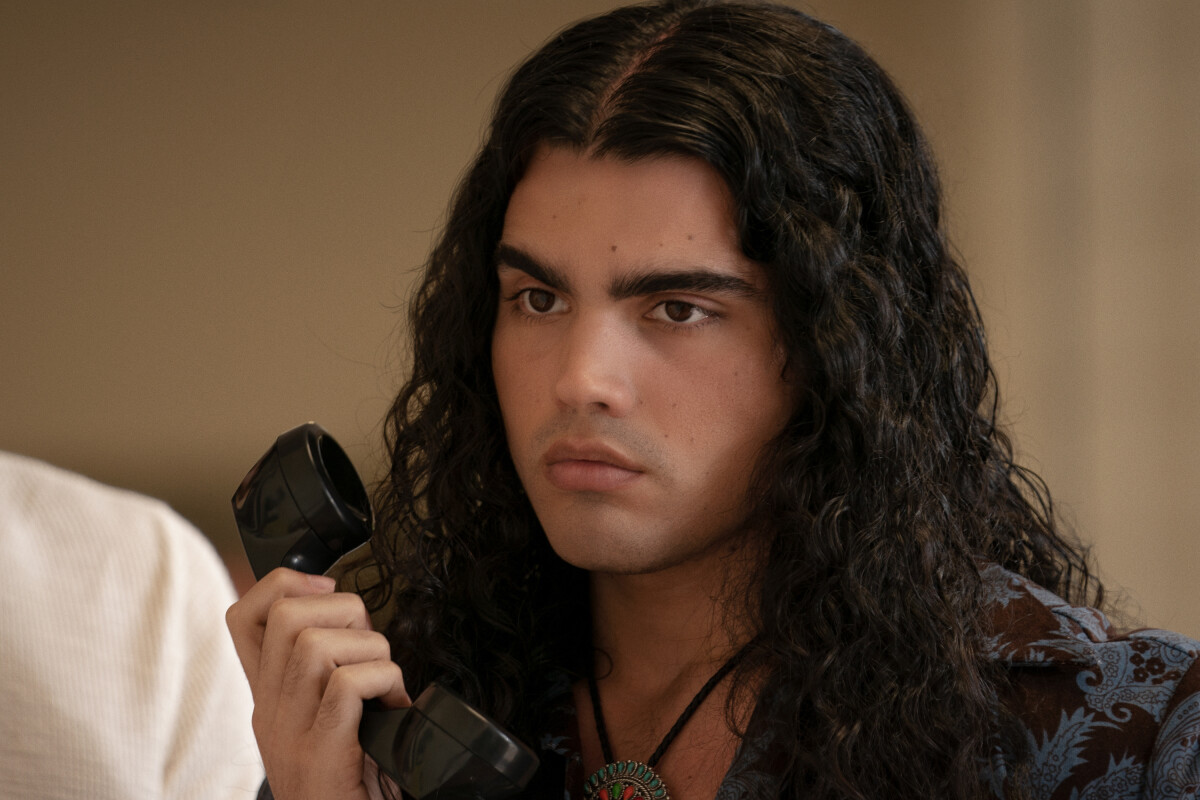
Carlos’ response to his trauma was the opposite of John’s. Carlos opened up in group therapy, accepting the understanding of other survivors, and releasing his trauma rather than letting it fester within him.
Although the most powerful images of his episode were about John’s and Carlos’ flashbacks to Vietnam, Mary also dealt with her own PTSD.
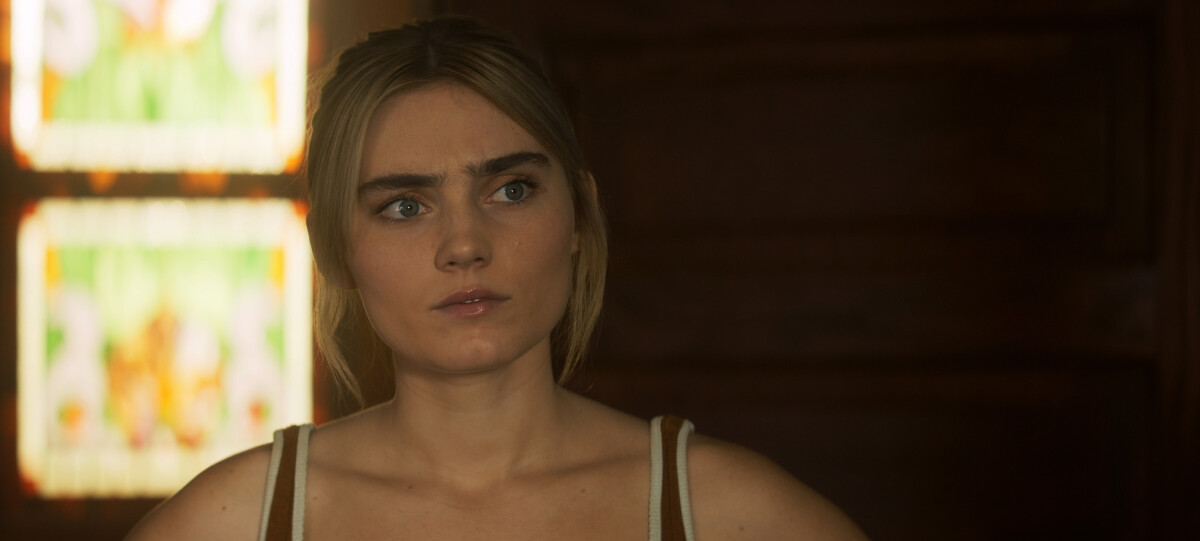
Her family had both emotionally and physically closed off their memories of her cousin Maggie’s death.
Lata: That’s Maggie’s old room. No one’s been in there since…
John: She was killed on a hunt, right, yeah.
With Lata’s help, Mary reopened Maggie’s room and faced those memories, although, honestly, I was confused by Mary’s reactions to entering Maggie’s room for the first time in a year. It was far less emotional than I would have expected, adding to the conundrum that is Mary. I felt the most connected to her during the earlier sparring scene with John. She was unguarded and, for the first time since they met, seemed genuine and at ease.
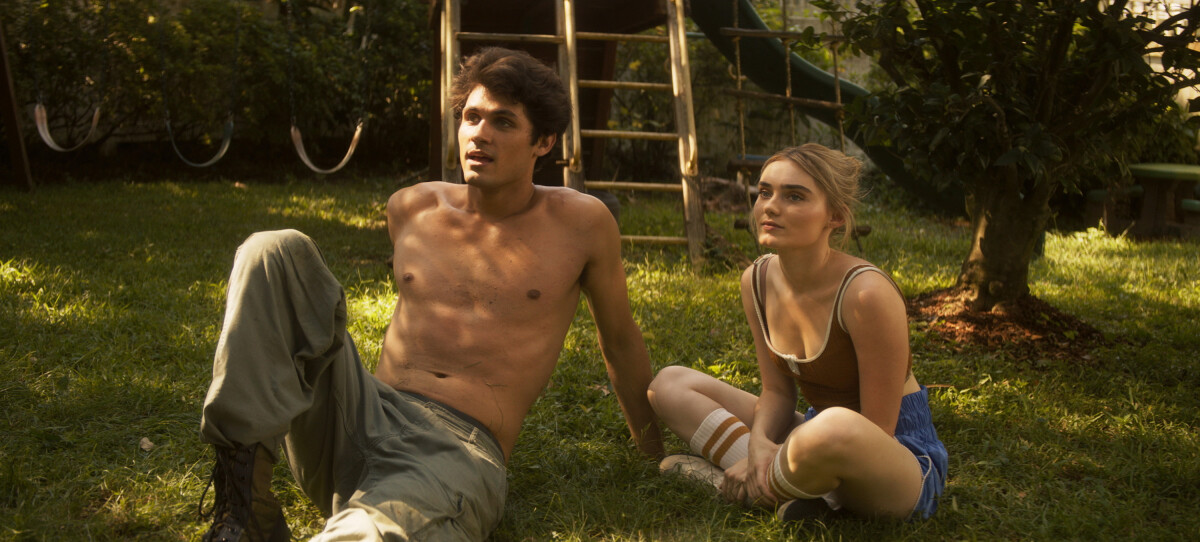
I saw the Mary everyone keeps telling us to see – the warrior who can take care of herself. For a brief moment, I was truly excited because I felt a real connection to her as a character. (I also noticed that her hair was pulled back in the sparring scene, again making me think that I’m being superficially confused by the ‘tough girl wearing curls’ look that’s in every other scene of the episode.)
Sadly, Mary’s lack of emotional nuance when confronting her grief distanced her from me soon afterward but I’m holding onto that crack in her armor that let us glimpse a Mary I can understand. Hopefully, Mary’s reticence may begin to fall away now that she’s begun to process one of her losses. She even adopted Maggie’s therapeutic ritual of writing down positive things to counter balance all the negatives of hunting.
Hunting Things
Carlos: I guess it doesn’t matter how I got there or how I felt about the war. Circumstances might be different… But our trauma is the same.
Carlos was referring to wars that were fought between nations (in this case, World War II and the Vietnam War), but the same can be true of the war hunters wage on monsters. Circumstances differ, but hunters carry the shared trauma of horrifying, unexplainable loss. Mary’s trauma came from losing her family member to a vampire (she still has hope of finding her father so that isn’t yet a traumatic loss). Carlos’ and John’s traumas were also from losing their families to monsters – Carlos to a ghoul, and John because of Abaddon (although he doesn’t know that).
Dean told us that the more dangerous monsters are the ones that destroy us from the inside out. If that was his warning, then the lesson to be learned was that facing those monsters by sharing and talking about traumas helps us defeat their power over us. “Talking” was mentioned 19 times during this episode, enough to make the point of its value.
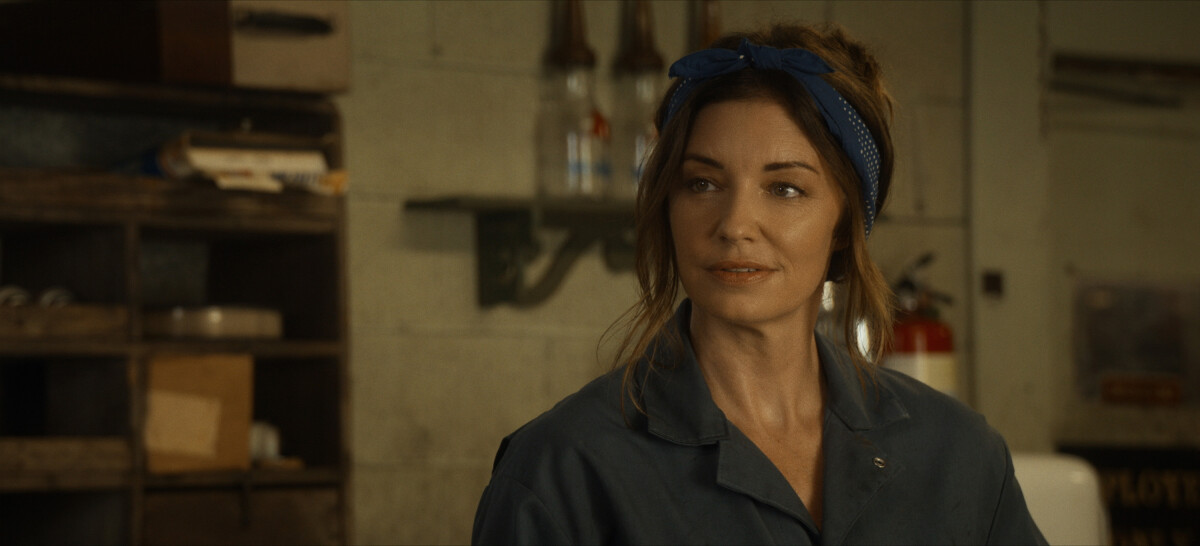
John: Yeah, the thought of sitting around talking about how I feel…
Millie: Never been our strong suit, huh? Talk is cheap, kiddo. It’s our actions that matter most.
Sounds exactly like Dean, doesn’t it? While Millie wasn’t wrong, John’s “actions” haven’t yet helped him heal. It’s time for him to try a different approach. Carlos echoed Dean’s wisdom when he tried to convince John to face his pain:
Carlos: Okay, you ready to open the floodgates and let the healing begin?
Millie: If they start trying to blame it all on the mother, you’re out of there. Got it?
John: Course. We all know it’s Dad’s fault anyway.
Loved that conversation! As a mom with young adult kids, I’ve had enough of the stage where everything is mom’s fault! Millie was a part of the hunt this time, doing things only John’s mom could do.
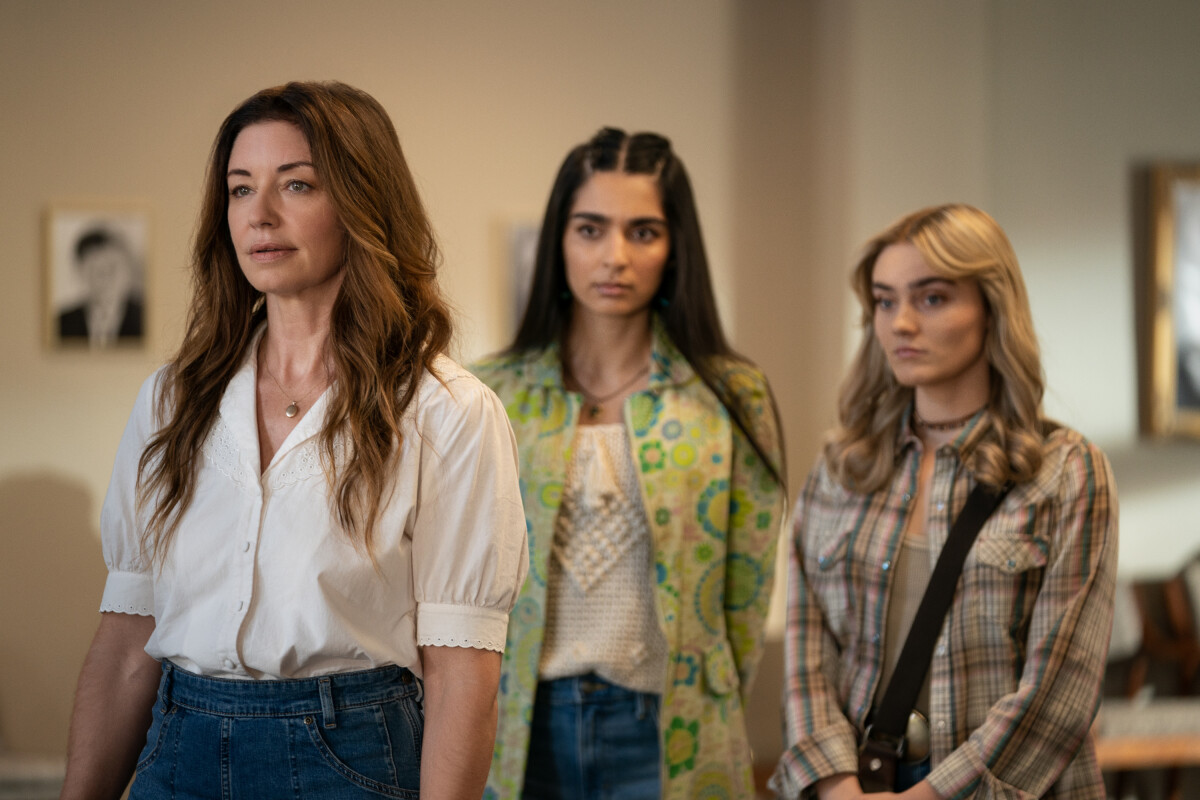
First, she provided the legitimacy of “family visitation” to the hospital, then she picked up the pieces that were left of John after the hunt concluded. I hope this signals a gradual healing of the mother/son relationship both for John’s and Millie’s sakes, and because she is a welcome, inter-generational addition to the monster club.
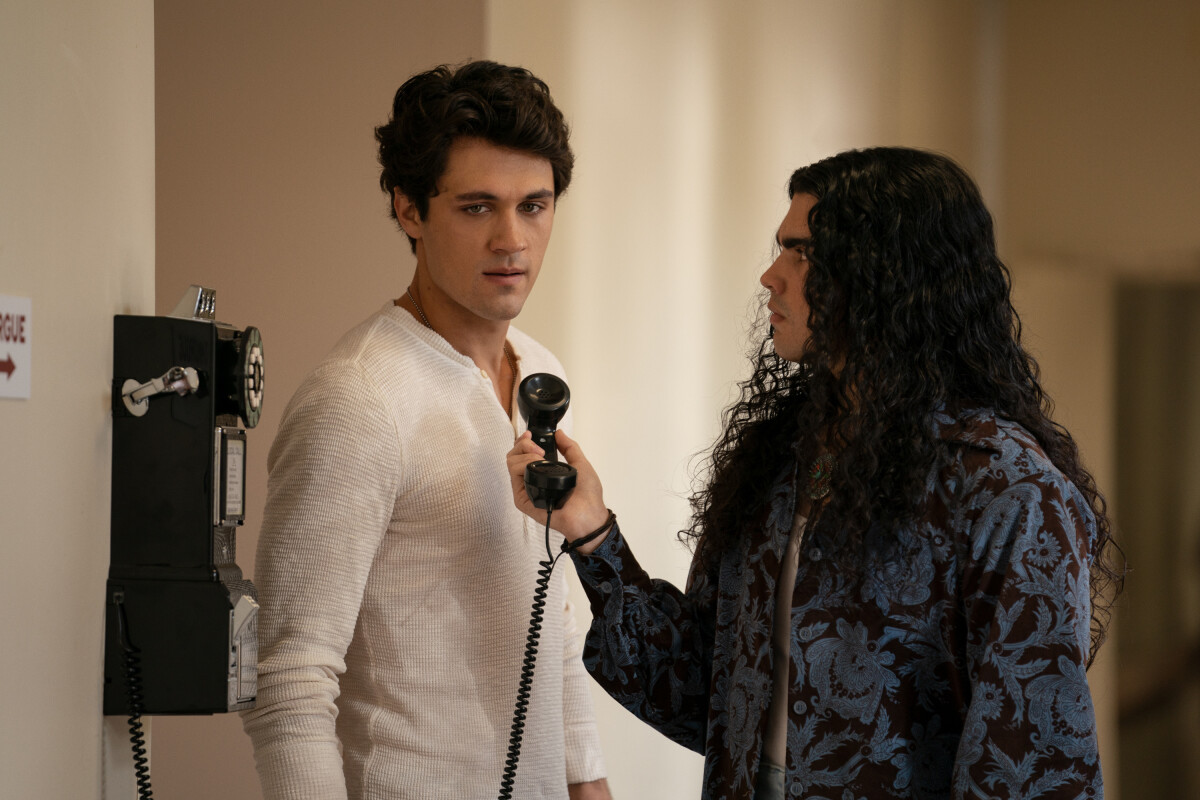
Carlos’ part in their undercover investigation was to infiltrate the group therapy session with John. Unlike John, though, Carlos’ role-playing testimonial surprisingly helped him face his monsters. He showed potential for the “growth and healing” the doctor hoped would be achieved from therapy by all the veterans, hopefully modeling that path for John.
When I got back from ‘Nam, I thought the less I said, the better, but today, sharing what I went through, I completely forgot about this case and why we’re here. Talking about it actually helped.
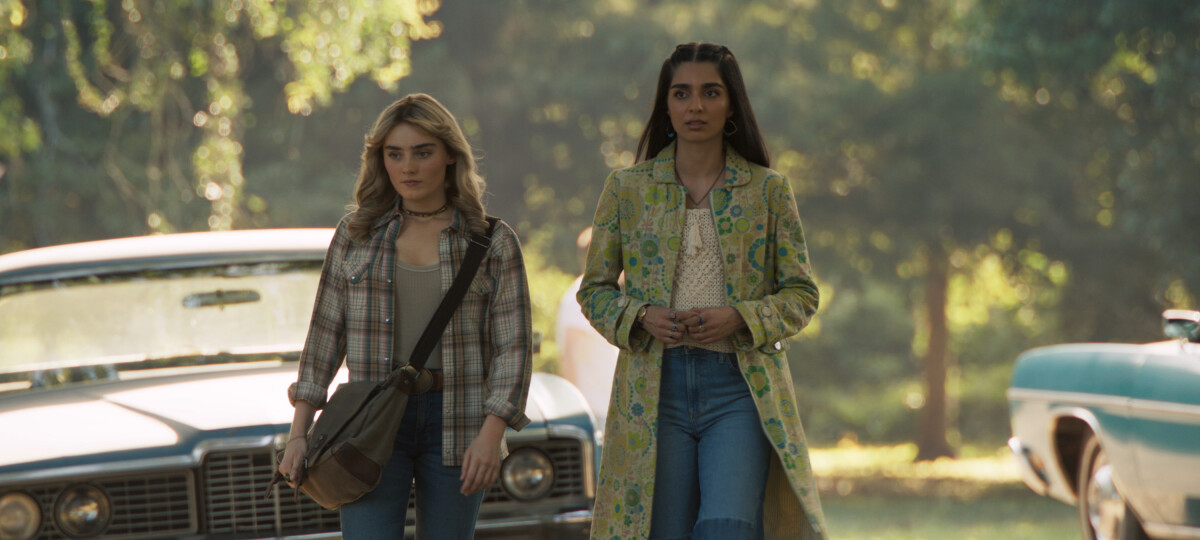
While Carlos was trying to get John to talk, Lata was doing the same to Mary:
Lata: Do you want to talk about it?
Mary: Talk about what?
Lata: You know, Maggie’s room. It’s been a year, and I thought I was in a good place, but the second that door started to open…
Mary: Yeah, it’s her room. It’s closed for a reason. It has been since my parents invited her to move in.
Lata: Sometimes I wish she was still here just so I could ask her how to get over the fact that she’s not. (another really great line!) Even with hunting, she always found a way to see past the darkness.
The first step in any hunt is recognizing and identifying the monster. Metaphorically, Carlos and Lata saw John and Mary’s visceral monsters far better than they did. That worked well to develop all four characters.
Carlos: I’ve tried any way I can to escape, but I don’t think we can just walk away. I think we have to face what’s in here if we want to get out.
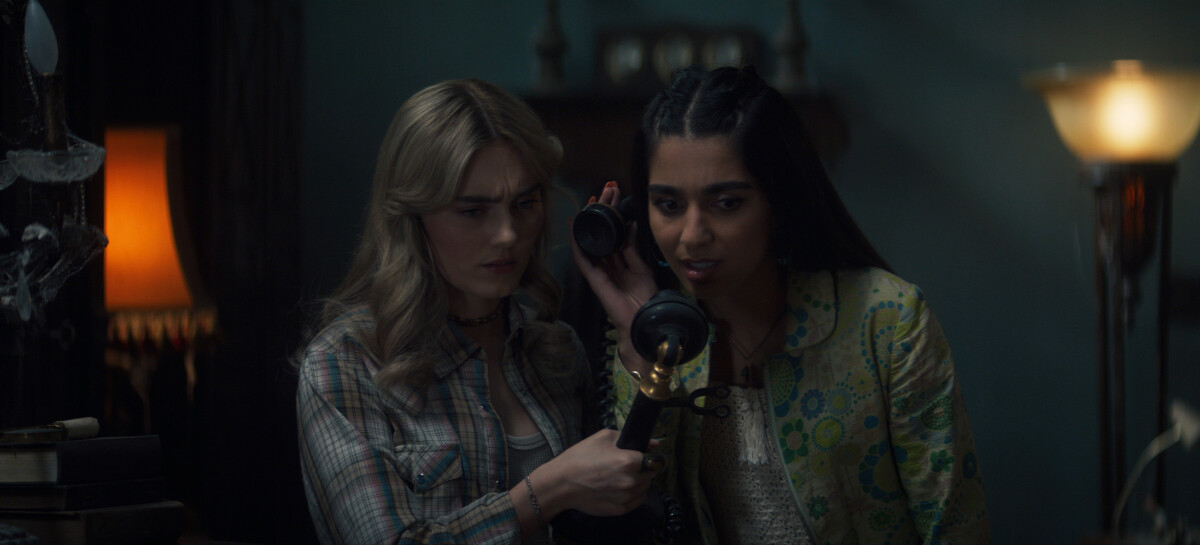
Literally, the group learned the monster they were hunting was a god of war. Identifying the vets’ supernatural killer as Mars Neto was the only weak aspect of the episode for me.
Lata: I’ve been doing inventory on the clubhouse’s library, and, shocker, a bunch of old white men weren’t big on pre-Christian lore and myths.
Out of dozens of witty, memorable lines in this episode, this one seemed to be trying too hard. I seem to remember Sam and Dean’s MoL Bunker had books on every kind of monster dating back to ancient times. Am I wrong on this? Then Lata looked under Maggie’s bed, found one book, flipped a few pages and in seconds miraculously found the exact sketch she needed.
Lata: Mars Neto, a Celtiberian deity based on the Roman god Mars.
Sorry, it doesn’t work that way. We’re being asked to believe that Lata knows as much as Bobby Singer but she hasn’t really earned those credentials yet. Sam and Dean used to research through books and the internet for days before finding a clue on what they were hunting. Lata is finding answers way too easily.
If identifying their prey was handled a bit clumsily, the way this monster was worked into their overarching hunt was impressively smooth.
Neto: Men of action are so hard to come by. Welcome, Corporal Winchester…Everything I did for you was to get you to embrace your anger, to get you ready.
John: Ready for what?
Neto: The Akrida. I know The Akrida are already here. You and your hunter friends are too weak to stop them, but you, a hunter and a soldier… you could be sharpened into a powerful weapon.
It’s the Yellow-Eyed Demon manipulating Sam all over again!
Patches: Who are you?
Neto: Destiny.
The Winchester family curse is being used by supernatural entities to fight in some larger war!
Neto: You’re still holding back. I know the anger you have inside you. Set it free! There is centuries of violence and rage in your blood, John. Become what you were born to be! Bingo. Your scars are holding you back. Your past is holding you back. Let me wipe the slate clean.
So was Neto’s killing spree the equivalent of the YED weeding through his candidates to find the perfect general for his war? It sounds like that was why Neto targeted traumatized veterans – they were soldiers filled with rage who he could potentially fashion into weapons. John became his “favorite” but John wouldn’t play his game. Instead, John turned his rage against the god, eliminating the master of war and taking control of the game he was playing. After John’s brutal attack, Neto proclaimed:
You’re ready for the war against Akrida.
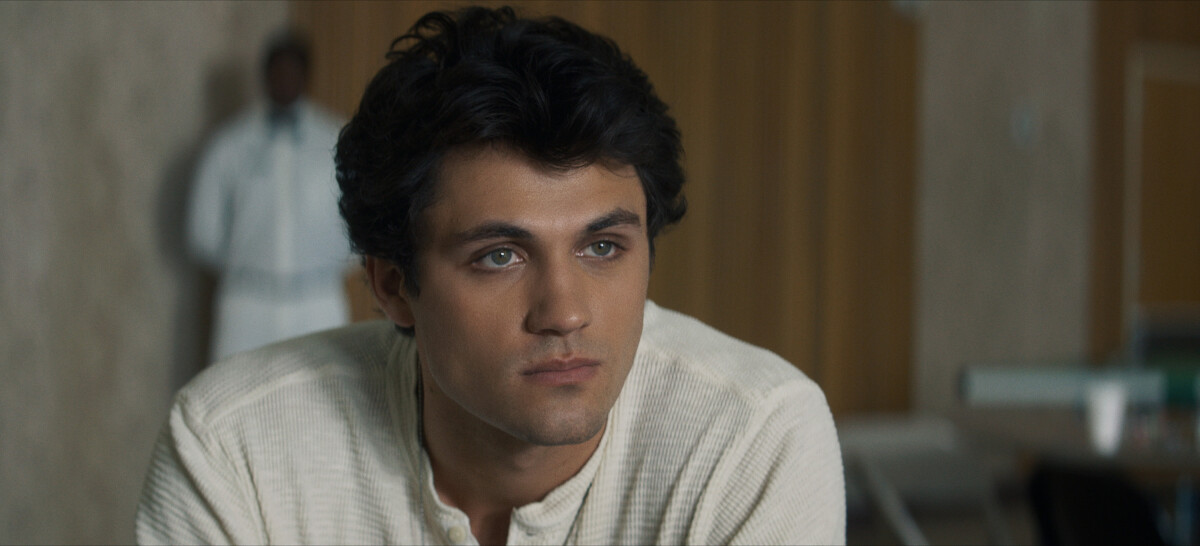
But the toll on John was great. His “man of action” tactics broke him in ways that talking may not have. John’s trauma caught up to him, first covering him in blood, then drowning him in tears and flowing water, none of which were able to wash away his memories, insecurities and grief. John expressed his pain but he didn’t heal from it. All his mother could do was be there with him while he wept, wet and trembling. Such an amazing, powerful scene. John once again enlisted in a war, not knowing the immense price it would require of him. By not healing from his past traumas, he’s following a path that will increase them exponentially.
Give Them What They Want in a Way They Don’t Expect
He’s a god. All we know is that he’s incredibly powerful, capable of altering the reality of his adversaries during battle, literally using the fog of war to trap and kill them.
It hadn’t occurred to me until hearing that line, but one option for the premise of The Winchesters would have been that this is one of Chuck’s other worlds. The details in the history behind a different Sam and Dean would be slightly different than our Sam and Dean. Poof. It all works. I don’t buy into that theory, though, because that is definitely our Dean telling this story, but are the Akrida strong enough to “alter reality” to ease their invasion? We don’t know enough about them to say yes or no. All we know is that they are other worldly and have made multiple attempts over decades to invade Earth. Does that make them god-like? Keep looking for other clues to see if we can figure this out before all is revealed in episode 13!
The god’s offer to “wipe the slate clean” of the past that was holding back a Winchester from his potential was also an intriguing tease. I wonder if that’s how things will all come together.
New Mysteries
Is Mary’s investigative reporter actually a reporter… or another hunter? Might he be a MoL trainee? His arrival seems a bit coincidental.
The Last Word… about the 70’s
I was incredibly moved by “Monsters of War”. Written by Julia Cooperman and directed by John Kretchmer, the episode broke through superficial storytelling to deliver an emotional journey with its characters. It also sensitively discussed a vitally important topic of PTSD and the trauma of loss.
Part of this episode’s journey was mine. Memories of the Vietnam War era surfaced within me, revealing feelings of dread and fear that I not only hadn’t felt in a long time, but hadn’t really realized I felt at the time it was all happening. There was more to the 70s than hippies, love beads and music fests. It was a complicated time full of contradictions. Peace and love against a backdrop of violence and napalm. Conservatism vs. the “anti-establishment” rebellion. I thought I had left all that behind a long time ago, but sometimes the monsters within us are silent, patient. They may be impacting our psyches without us even knowing it. Hopefully, we mimic Carlos’ and Lata’s examples and talk about the things we’ve buried deep inside us. It has to be better than taking clothed showers, like John – but if that’s how he needed to “open the floodgates” to his grief, it’s a start.
Everybody’s talking at me,
I don’t hear a word they’re saying
Only the echoes of my mind.
– Nightsky
What did you think of this episode? Please share your thoughts below!
Keep up with Reviews, Photo Galleries and News on The WFB‘s The Winchesters Page!
Read more of Nightsky’s “Threads” reviews, analysis, interviews and light-hearted fun on The Winchesters, Walker and Supernatural, all on Nightsky’s Writer’s Page!
Transcript courtesy of TV Show Transcripts
Screencaps courtesy of The CW



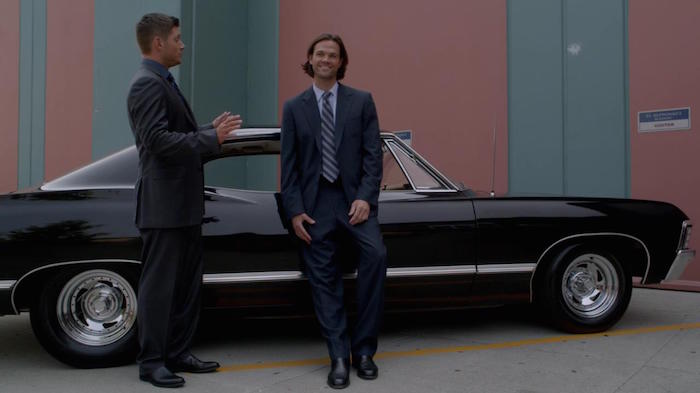
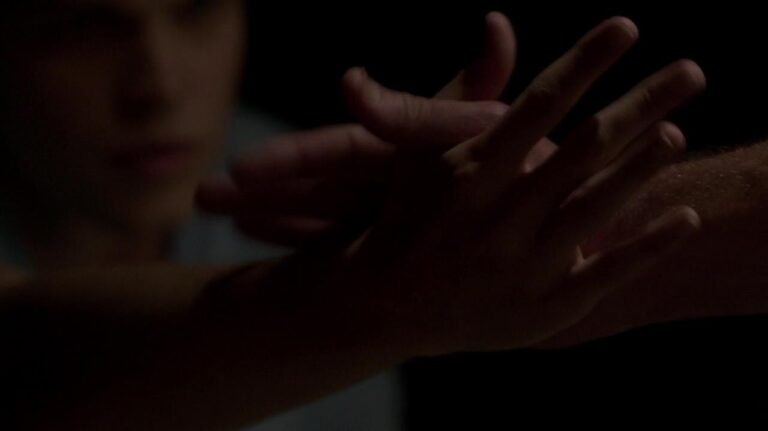
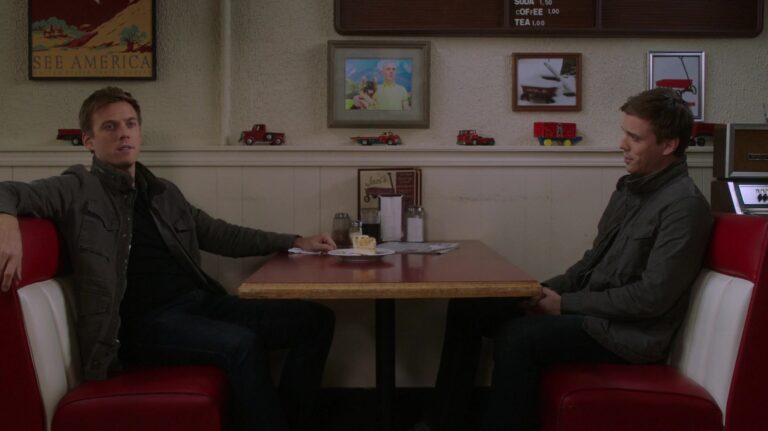
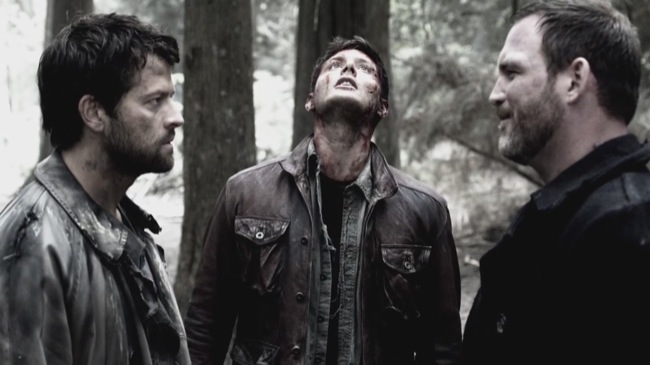
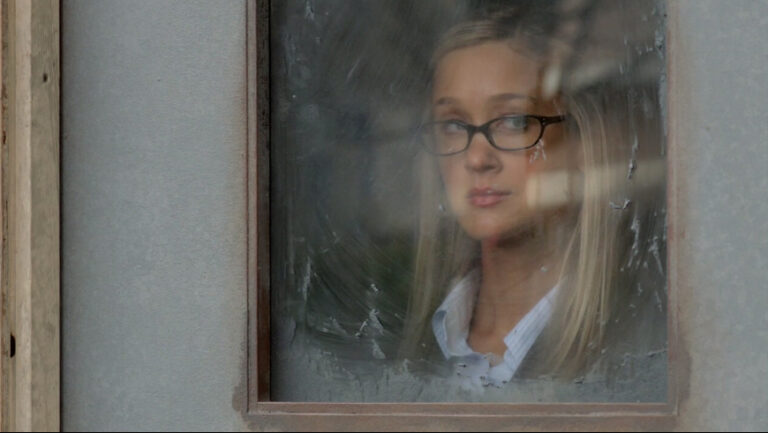
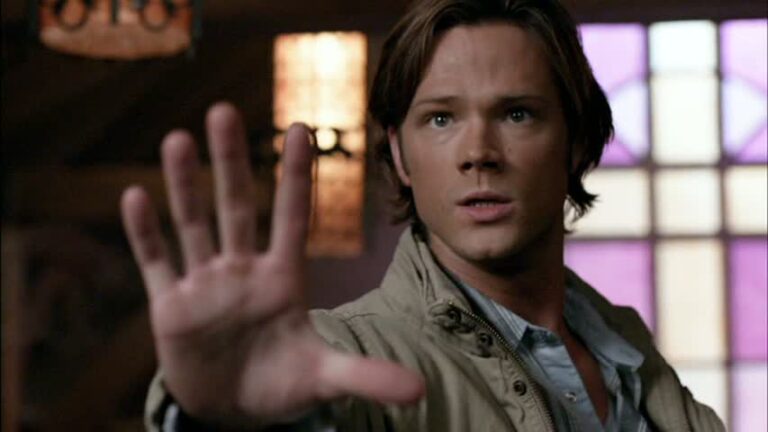
Leave a Reply